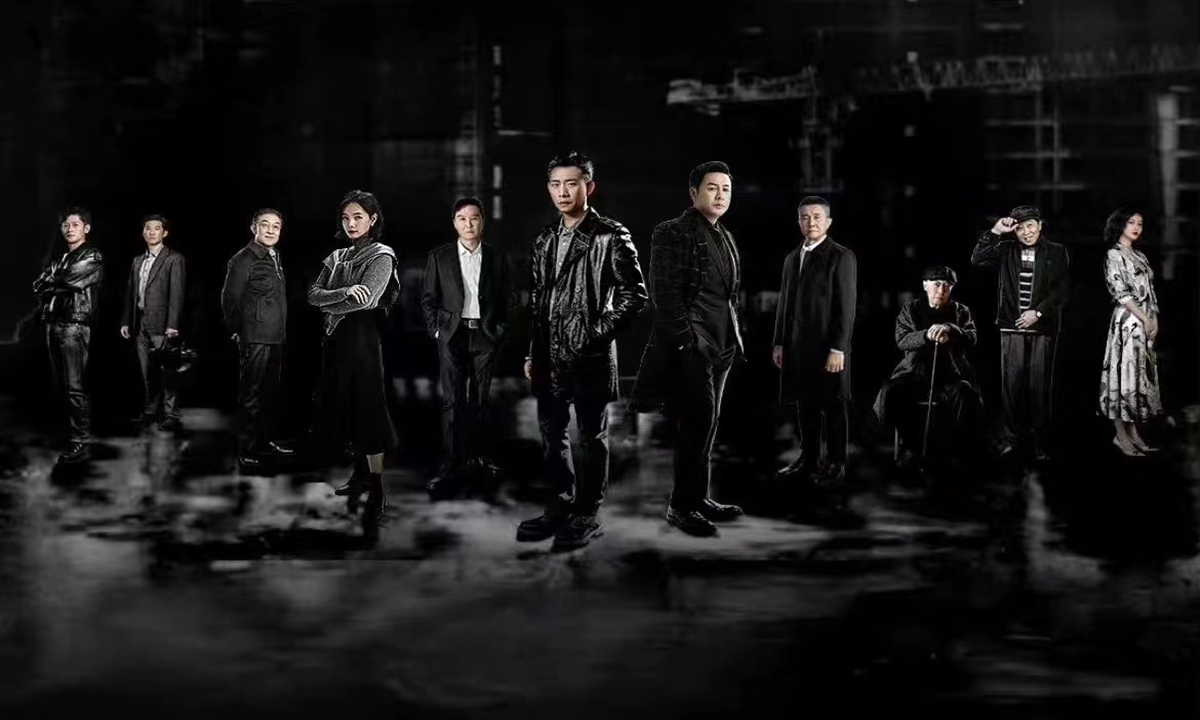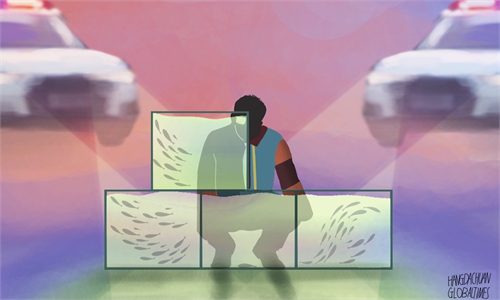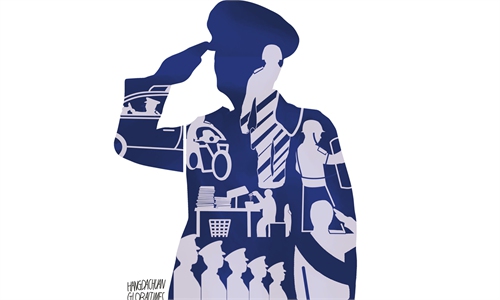Hit TV show offers officials mirror on China's anti-graft drive, highlights CPC's determination to eradicate gang crimes

The Knockout, which became a huge hit during the Chinese New Year holidays,tells the story of China's successful crackdown on criminal gangs and the great acting on display have become a hot topic on social media.Photo:The Paper
The current hot TV drama in China, The Knockout, not only knocks audiences in the aisles with its vivid portrayal of a decades-long journey in fighting gang-related crimes and corruption, but also stirred heated discussion among public servants, as it offers a mirror for them on anti-graft activities.
Officials from Junyi county, Shaanxi Province watched The Knockout recently. "The show does not merely portray corruption and evil forces, it also rings an alarm bell and inspires us, as it explores the cause of corruption and provides a mirror of preventing corruption," Cai Lina, an official from the county's Commission for Discipline Inspection, was quoted by the media as saying on Monday.
The Knockout has dominated screens since it was released in January. It tells a story about a grassroots police officer's 20-year arduous journey combating the criminal underworld of gangsters and the corrupt officials who serve as the gangs' "protective umbrella."
The show has won wide applause, and it stands out from most shows in the genre because it addresses the underlying issue that leads characters to different destinies. For example, it delves into a gang ringleader's background as a cash-strapped fisherman who gets into shady business dealings after struggling to support his family.
Such vivid and delicate narration has led audiences to see the complexity and intricacy of gang violence, as well as corruption of grassroots officials, said a user on review platform Douban.
It is rated 8.6 out of 10 on Douban, and it has stirred heated discussion on Chinese social media on fighting gang-related crimes as well as corruption.
The Local Commission for Discipline Inspection and Commission for Political and Legal Affairs in Chifeng, Inner Mongolia asked officials and police officers to write commentaries about the show. Those officials must integrate their own experience and afterthoughts of watching the show with their commentaries, and meanwhile take the show as a mirror to reflect on themselves.
An official from Chifeng's Commission for Discipline Inspection told the Global Times on condition of anonymity that the show bears high resemblance to daily work. "Promoting our work makes us feel more responsibility and a sense of honor," said the official.
Educating Party members on anti-corruption is a long journey, and using a hit TV drama to educate officials can be seen as an innovative way of doubling down on such education, Zhi Zhenfeng, a legal expert at the Chinese Academy of Social Sciences in Beijing, told the Global Times.
He noted that the huge success of the show also highlighted the Party's achievement in fighting corruption in recent years. "If the corruption problem was still rampant like it was 20 years ago, the show [that ends with evil and corrupt figures been punished] wouldn't receive such widespread applause," said Zhi.
An official surnamed Yu from Chongqing's Commission for Political and Legal Affairs referred to a scene in the show where gangsters beat up a man in public, but the victim's calls to a police station are dismissed by police officers. "Such a scene might be true 20 years ago, but can you imagine such things happening in today's China?" said Yu.
The Chinese government has been repeatedly emphasizing the importance of and determination in fighting corruption. According to official statistics, since the 18th National Congress of the Communist Party of China in 2012 to the end of April 2022, discipline inspection and supervision organs across the country had investigated nearly 4.4 million cases involving 4.7 million officials, the Xinhua News Agency reported in September last year.
It also said that from the 19th CPC National Congress to the end of April this year, nearly 500,000 cases of corruption and misconduct in the field of people's livelihoods had been investigated and handled, with 456,000 people punished.


